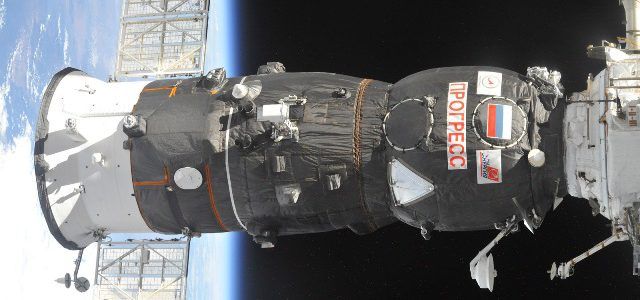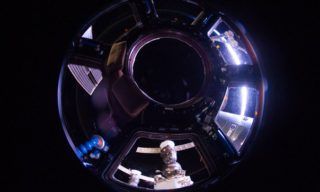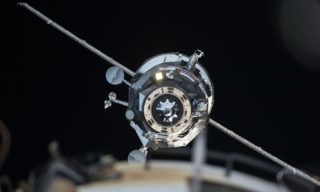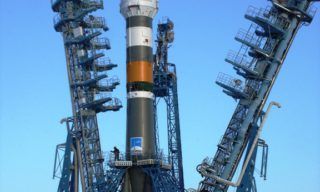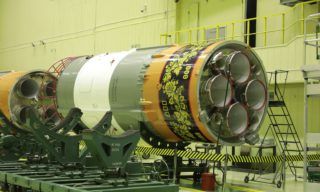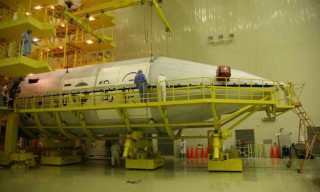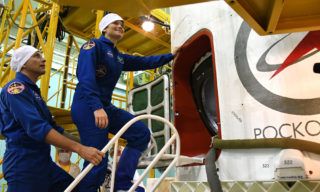According to press-service of the Mission Control Center, following the flight program of the International Space Station on April 28, 2013 a reboost maneuver was completed.
Based on calculations of ballistic and navigation support service of the Mission Control Center, engines of Progress M-19M were ignited at 10:03 UTC (14:03 Msc). According to telemetry the duration of the burn was 718 seconds. ISS reboost maneuver resulted in velocity increment of 1.54 m/sec.
The average altitude of the station orbit rose by 2.8 km and amounts to 411.7 km.
After completion of reboost maneuver the ISS orbit parameters are as follows:
– minimal altitude over the Earth – 408.4 km;
– maximal altitude over the Earth – 426.7 km;
– orbital period – 92.743 minutes;
– inclination – 51,66 degrees.
The purpose of the maneuver was to create an operational orbit required to support Soyuz TMA-07M undocking and re-entry on May 14, 2013 and mission of Soyuz TMA-09M that will be launched on May 29, 2013.




